Quiet, cheap and scarily efficient:
Rape as a weapon of war
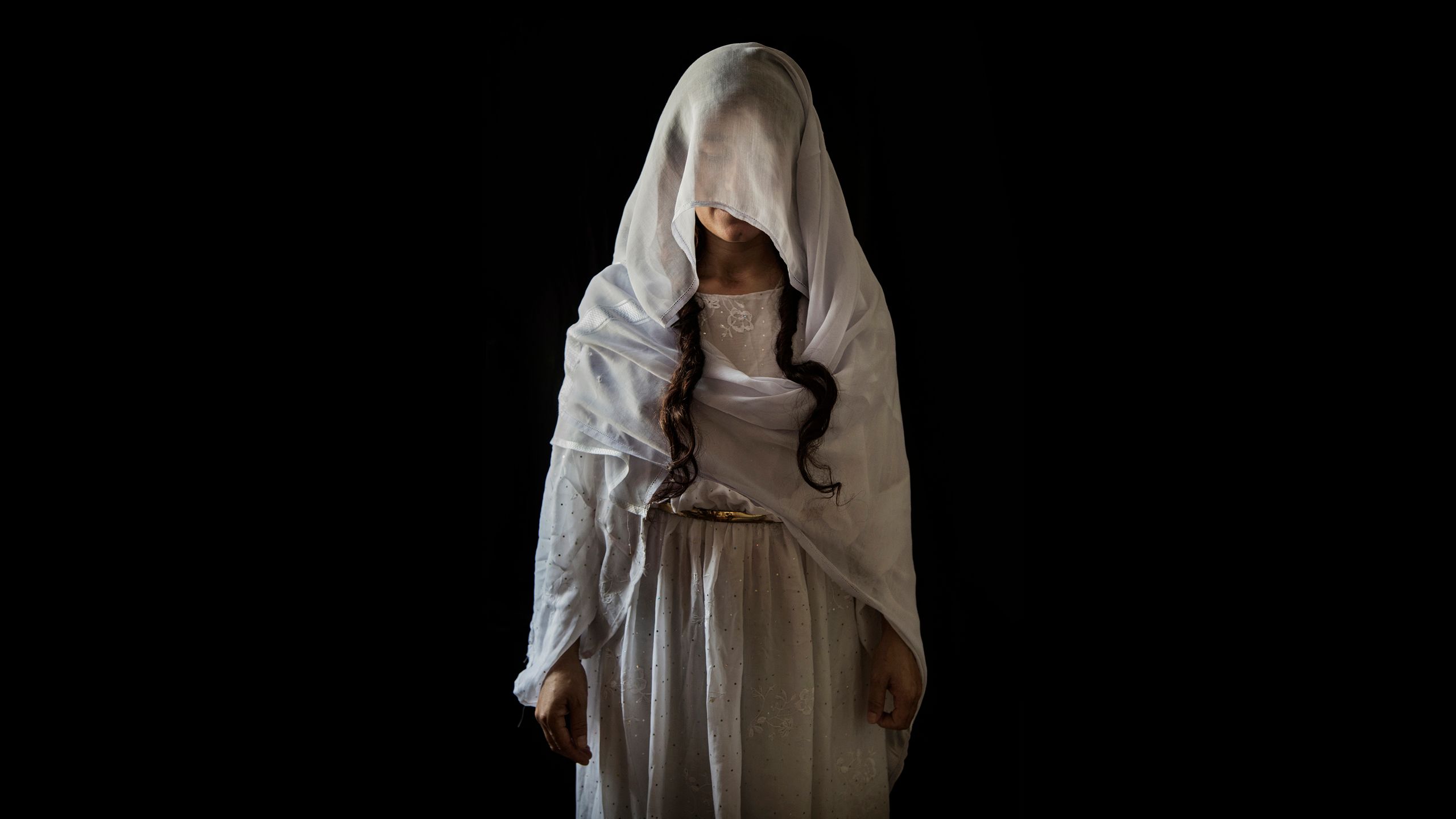
When IS group conquered the small town of Sinjar in August 2014, this girl, together with hundreds of others, was captured. They were starved, beaten, sold as sex slaves and forced into marriage.
A few months after Sinjar was retaken from IS group, the Kurdish photojournalist Seivan Salim met several young Yazidi girls in a refugee camp. The girls had fled from IS captivity and told stories of rape, violence and slavery.
The stories were so horrific that Salim knew she had to do something. She had to tell the world about these vicious crimes.
Salim dressed the girls in white to express their purity despite what IS group had done to them.
But first, she asked the girls to tell everything on video.
One of these girls was this year's Nobel Peace Prize winner, Nadia Murad. This was her first ever interview. The interview has never before been made public.
“Nadia insisted that she would not be anonymous, and she refused to wear the veil. But to protect her, I still anonymised her face,” says Seivan Salim. The recording was made in July 2015, around eight months after Nadia Murad escaped from IS group.
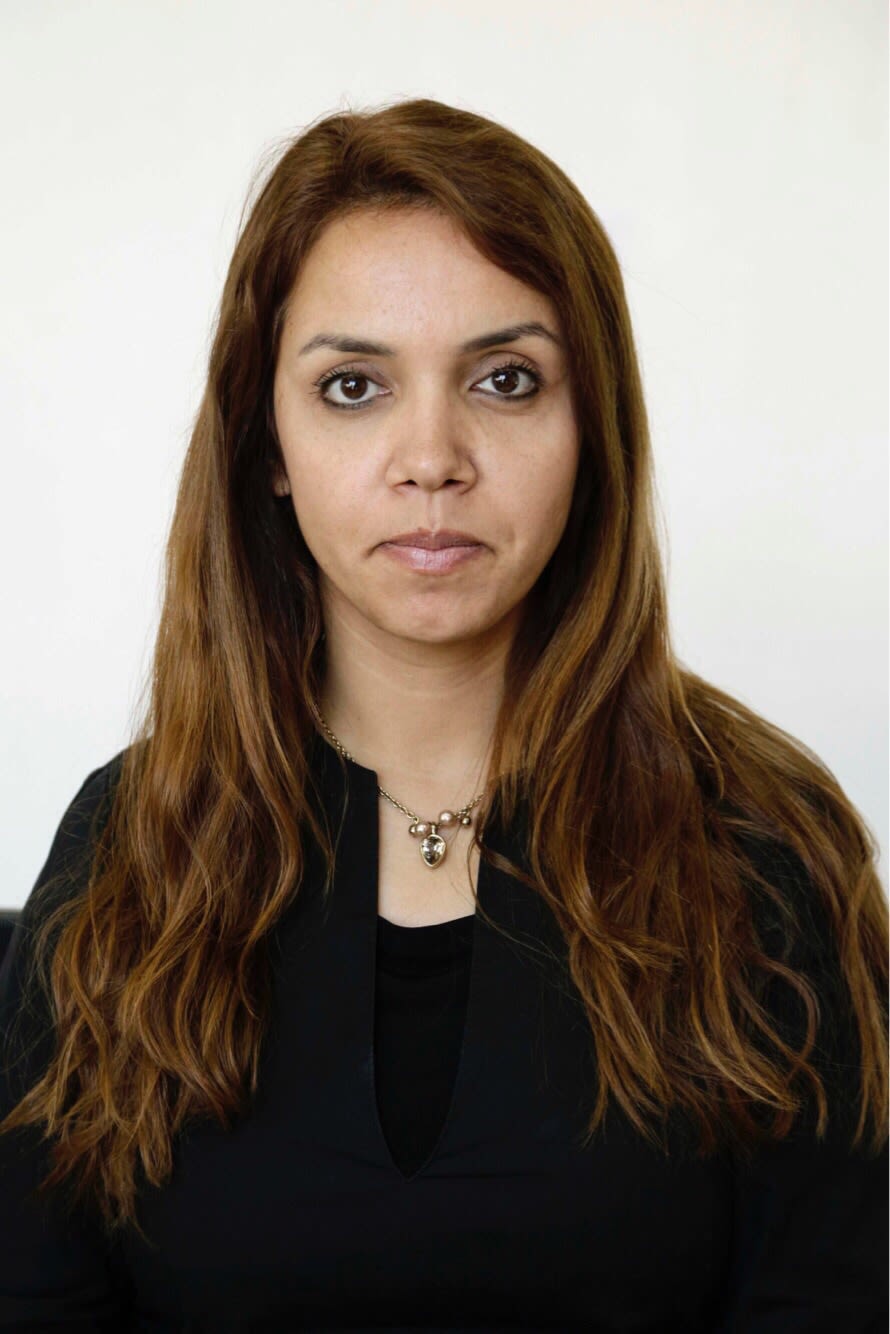
Seivan Salim, Photo journalist in Iraq. Photo: Private
Seivan Salim, Photo journalist in Iraq. Photo: Private
This video can only be published with permission from Seivan Salim. Video: Seivan Salim
Nadia Murad decided to tell the world about what she had been subjected to and was subsequently appointed the UN's goodwill ambassador. On December 10, 2018, she was awarded the Nobel Peace Prize together with Dr. Denis Mukwege.
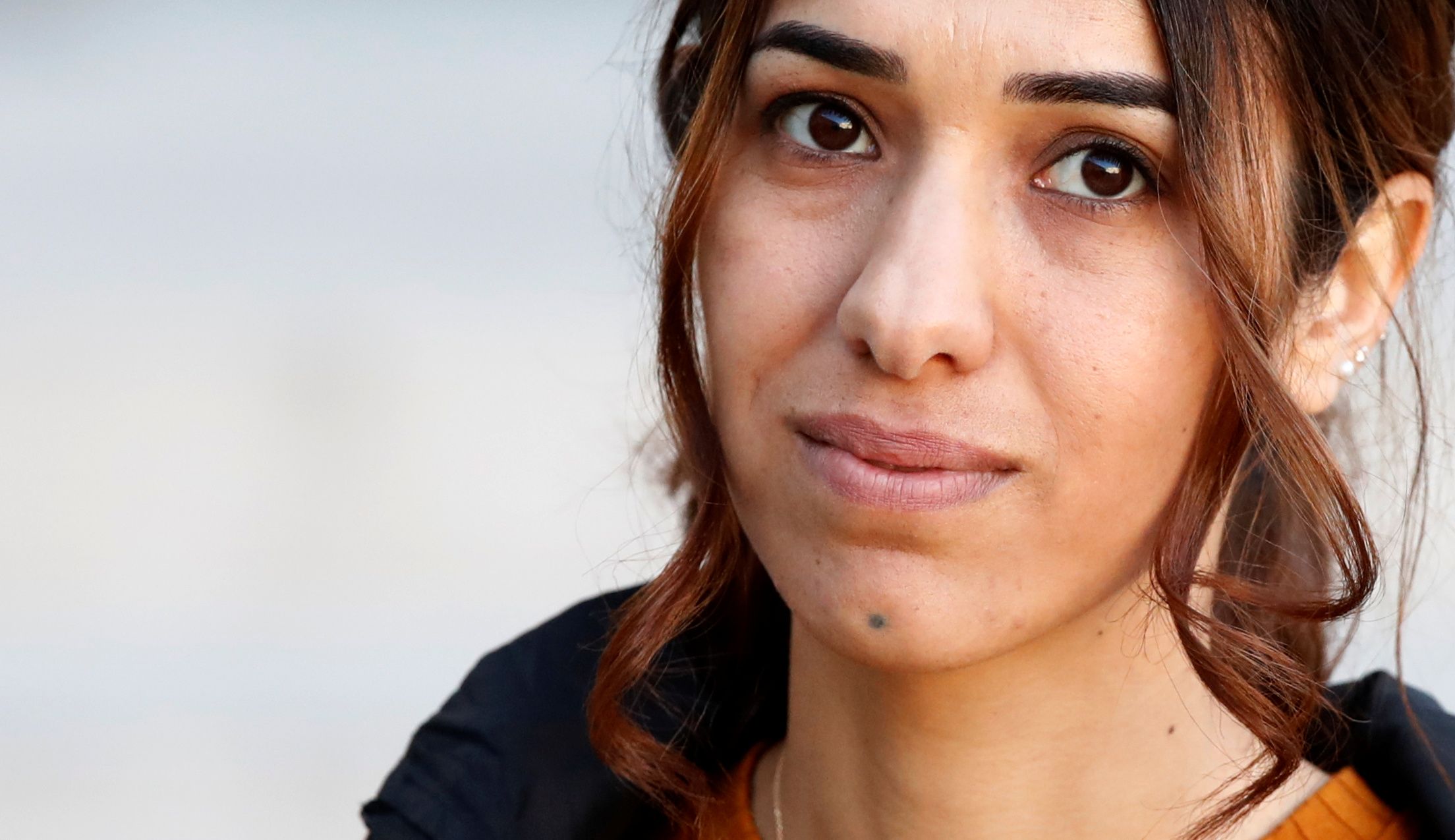
Nobel Peace Prize winner, Nadia Murad, 25 October 2018. Photo: Christian Hartmann/REUTERS/NTB Scanpix
Nobel Peace Prize winner, Nadia Murad, 25 October 2018. Photo: Christian Hartmann/REUTERS/NTB Scanpix
The attack on the Yazidi in northern Iraq has been described as ethnic cleansing and genocide.
Some of the girls were only 12 years old. Many refrained from washing themselves in desperate hope that the men would lose the desire to rape them. There were also several of the girls who tried to give the impression that they were mothers, because the perpetrators were primarily looking for virgins.
Video: The UN Refugee Agency (UNHCR)
“Sexual assaults committed by terrorist and extremist groups seem to increase. At the same time, the world has opened their eyes to what is really happening,”
Rapid development
“Even though this peace award is awarded quite ‘late’, the subject of rape as a weapon of war would have been unthinkable only a few decades ago. We used to think that rape and the politics of war were two completely separate issues. The development has been rapid. This is thanks to pressure from several countries, organisations and a network of key actors in society,” says Inger Skjelsbæk, who has researched rape as a weapon of war for more than twenty years.
Skjelsbæk is a research professor at the Peace Research Institute in Oslo (PRIO) and an associate professor at the Department of Psychology and Centre for Extremism Research at the University of Oslo. In addition, she is deputy to the Nobel Committee, but has not had anything to do with this year's award.
Growing concern
It was especially after reports of mass rape of Bosnian women during the 90s’ Balkan war and the genocide in Rwanda (1994), that the international community became aware of this. That sexual abuse was intentionally used as a weapon to exterminate whole populations, terrorise people and drive them from their homes. Then came the reports of the wars in countries like Rwanda, East Timor, Sudan, Sierra Leone, Liberia and the Democratic Republic of the Congo.
“In 2008, resolution 1820 was adopted by the UN Security Council. It was then decided that a Special Representative of the Secretary-General would write annual reports on sexual abuse in war and conflict,” says Skjelsbæk.
She says that in these reports there is a growing concern about extremist groups, where the use of rape appears to increase:
“Both last year and in the latest report, published in March 2018, this is evident. There are two concerns: one is that extremists have a pronounced ideological warfare against values such as gender equality, which makes women more vulnerable. The second is that they are using rape as a strategy that is directly encouraged.”
“And this”, says the researcher, “is something entirely new.”
For even if one talked about the use of rape as a weapon both before and during the Balkan wars, during the court processes afterwards it was revealed that these abuses were not necessarily performed through a direct order. They were only tacitly accepted.
Changes in attitude and penalties
Rape has been used as a weapon of war as long as there have been wars on earth.
“But we've gone from thinking that ‘rape is something inevitably happens in war because men are men, and things happen’ to thinking that rape is a clear war strategy and a war crime that threatens international peace and security. And that it can be combated through changing attitudes and criminal prosecution.”
She gives examples from history: When WWII was over, Soviet forces entered Berlin. Many Russian, Ukrainian and Belarusian soldiers assaulted German women. At that time, rape was seen as a by-product of war. As a reward.
“This is different from how we talked and thought during the war in the Balkans. Then, we realised that rape was used - not as a reward - but as a means of ethnic cleansing,” the researcher says.
The overall war picture
Rape is known to cause serious physical and mental damage. For men who are victims of sexual abuse, too, the damage is severe, and their reproductive health can be damaged. In addition, there are social costs for both men and women, with a stigma that may differ from culture to culture. It's a cruel form of violence.
“But we must remember that this happens in a war situation. Therefore, the sexual assault is not necessarily the worst thing you experience.”
“If you've seen your child suffer or be killed, it is perhaps a much larger trauma. I think we have to get better at talking about the overall picture. It's important to keep in mind that these women are survivors. They can tell. They can fight.”
Understanding themselves
When society is talking about rape as a war crime, it can also be easier for women to talk about what happened.
“When it comes to questions about guilt and participation, questions about the raped woman's behaviour and sexual history are raised even in Norwegian courts. But such arguments fall away when talking about rape as a war crime. This can have a therapeutic effect on the victims, because it provides another way for them to understand themselves, which can be quite important,” says Skjelsbæk.
She also interviewed local therapists in Bosnia:
“They said it was very important in the therapy room to talk about the women almost as though they were combatants. As if they were fallen soldiers, rather than that they had experienced a big taboo that no one spoke of. In Bosnia, there was a woman who said to me: «What happened to me was not my fault. It was an international crime».”

Inger Skjelsbæk, professor at the Peace Research Institute Oslo (PRIO). Photo: PRIO
Inger Skjelsbæk, professor at the Peace Research Institute Oslo (PRIO). Photo: PRIO

In 2016, Melanie was raped by a group of men in Burundi. Her rapists fled when passers-by disturbed them but kidnapped her eight-year-old daughter. Now, Melanie is in a refugee camp in Tanzania. Photo: UNHCR/Benjamin Loyseau
In 2016, Melanie was raped by a group of men in Burundi. Her rapists fled when passers-by disturbed them but kidnapped her eight-year-old daughter. Now, Melanie is in a refugee camp in Tanzania. Photo: UNHCR/Benjamin Loyseau
Meeting the girls' needs

“In war and conflict, women and girls need extra help. Because they are last in line”, says Katia Urteaga Villanueva, Gender-based Violence Specialist in NORCAP, NRC’s global provider of expertise to the humanitarian, development and peacebuilding sectors.
Peru, Colombia, Darfur, Burundi, Sahel, Jordan and the Syrian emergency. For 18 years, she has worked in several humanitarian organisations and met women and girls in many countries who have been subjected to sexual violence in war and in other emergency contexts. Now, she works in NRC’s NORCAP department.
“I am convinced that we must begin by changing people's attitudes. Make people understand that women and girls are worth just as much as men and boys.”
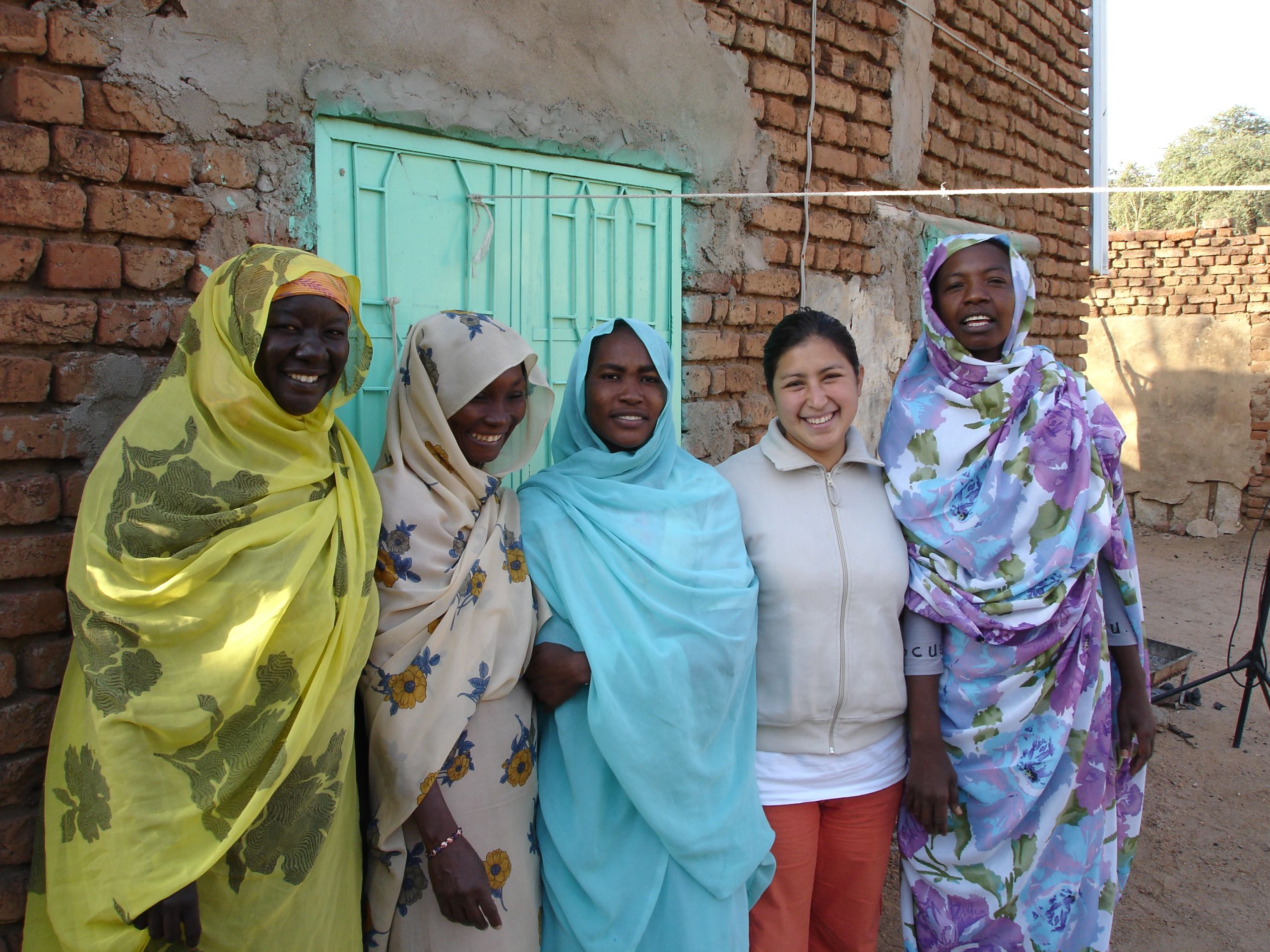
Katia Urteaga Villanueva worked in Darfur in2005 and 2006. Here, she’s pictured with some of her colleagues. Photo: private
Katia Urteaga Villanueva worked in Darfur in2005 and 2006. Here, she’s pictured with some of her colleagues. Photo: private
“Authorities must also be held accountable if they fail to protect people from sexual violence, and there should be no doubt that rape as a weapon of war must be punished,”says Peruvian Katia Urteaga Villanueva.
Several forms of sexual abuse
“We need to widen our understanding of sexual violence. Sexual violence is not happening only when someone points at you with a gun and then rapes you. If you have lost everything in an emergency and the only thing you have to negotiate with in order to survive, is sex, then you may see no alternative but to swap sex for food, protection and other survival needs,” says Urteaga Villanueva, thinking of Ukraine as an example.
“Our partners working near the contact line, the one separating Ukrainian forces from separatist rebels, have reported that different types of sexual violence are openly happening there. It is a very poor area, and those who live there are people who have lost everything but, despite the ongoing conflict, have not fled. In this extremely vulnerable context, very young girls are subjected to this pressure, including minors. Some men may say that ‘it's my girlfriend’. But if the girls are minors, then it’s rape.”
Urteaga Villanueva explains:
“If you are starving, or the people you care for are starving or sick, and the only option to get food or medicine is to exchange it for sex … they have to ask themselves every day: «Do we have anything to eat?» «Do I have what I need to survive?».”
“This is also a form of sexual violence against women and girls. Our work as humanitarian workers is to improve their equal access to fundamental rights, their dignity and protection,” she says.

Burundian Samira was raped by a gang of men. The rapes occurred while she was laying next to the body of her murdered husband. The soldiers who killed him said it was in retaliation for him having supported the "wrong" political party. Samira fled to Tanzania, and the photo was taken in 2016. Photo: UNHCR/Benjamin Loyseau
Burundian Samira was raped by a gang of men. The rapes occurred while she was laying next to the body of her murdered husband. The soldiers who killed him said it was in retaliation for him having supported the "wrong" political party. Samira fled to Tanzania, and the photo was taken in 2016. Photo: UNHCR/Benjamin Loyseau
Must strengthen the women
NORCAP’s gender and gender-based violence experts are working to support partners to understand that in emergencies, more than only food and medicines are needed. Partners must also work on the underlying causes of gender discrimination and gender-based violence, worsening the humanitarian crisis. They need to engage in strengthening the women and girls, so that they can also take care of themselves in those crises.
“So that women and girls can make their own decisions without exposing themselves to further violence or discrimination.”
Urteaga Villanueva believes it’s important for people to ask themselves where these gender inequalities and the sexual violence really stems from. Because sexual violence is not just opportunistic, in the sense ‘You are walking alone, I'll take advantage of you’.
“It’s something that lies deep in our societies. Discrimination against women exists in communities worldwide.”
Conflict and crisis make everything worse. When someone is standing over you with a gun, it won’t matter how much you try to reason with people in terms of equality:
“Once you have this rooted discrimination in everyday life, and add a crisis where the State structures that should protect you may have collapsed, those who are already vulnerable become even more vulnerable,” says Urteaga Villanueva.
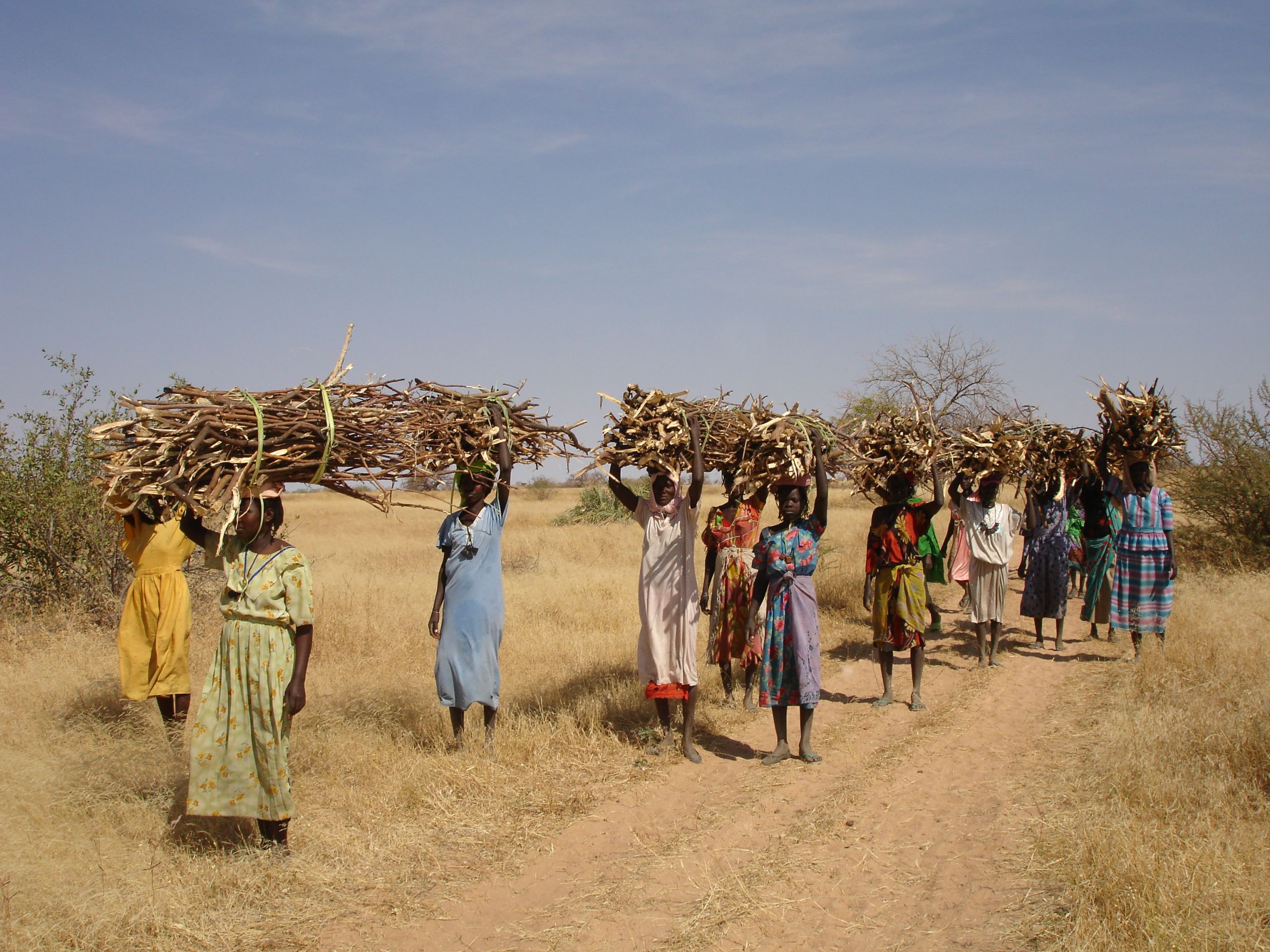
When these women in Darfur venture outside the refugee camp to collect firewood, they risk being sexually assaulted. The photo was taken in 2006. Photo: Katia Urteaga Villanueva
When these women in Darfur venture outside the refugee camp to collect firewood, they risk being sexually assaulted. The photo was taken in 2006. Photo: Katia Urteaga Villanueva
Dangerous to fetch firewood
When she worked in Darfur in 2005 and 2006, she spoke with between 80 and 100 women and girls who had been raped by illegal armed actors. The assaults occurred when the women went outside the displacement camp in which they lived, most often to fetch firewood so they could cook.
Urteaga Villanueva's work focused on advocating with Government authorities and the UN for the implementation of increased and more effective protection measures to stop sexual violence, particularly rape. One of the key partners in this effort was NRC, who was also working in Darfur at the time.
“I was very young and very naive and asked the members of a women’s committee in the camp, «But if you know what happens to other women when they go outside the camp, why are you still going?» And they replied, «If our men go out to fetch the firewood, the armed groups will kill them. But if we go out, we're "just" raped. That’s better, for if our men are killed, then we will be alone and will end up on the street with our children».”
One of the hardest things to listen to in this conflict was the repeated message the perpetrators of sexual violence sent to the community leaders through the survivors of rape.
The women who had been raped were told by the perpetrators that they should be happy, for now they would have the privilege of having a child with a different ethnic background. Or they would tell her that she could go home and tell her husband that he was not man enough to look after her.
“This type of messages sent by the perpetrators of the rape, who are armed actors, to the community through the woman or girl who has been raped by them, is a special war tactic that is used to destroy the social tissue of communities, their ability to resist the violence and survive the conflict.”
“That’s why it’s called ‘rape as a weapon of war’; because this type of war is fought through the women's bodies and has enormous consequences for the survival of their communities.”
